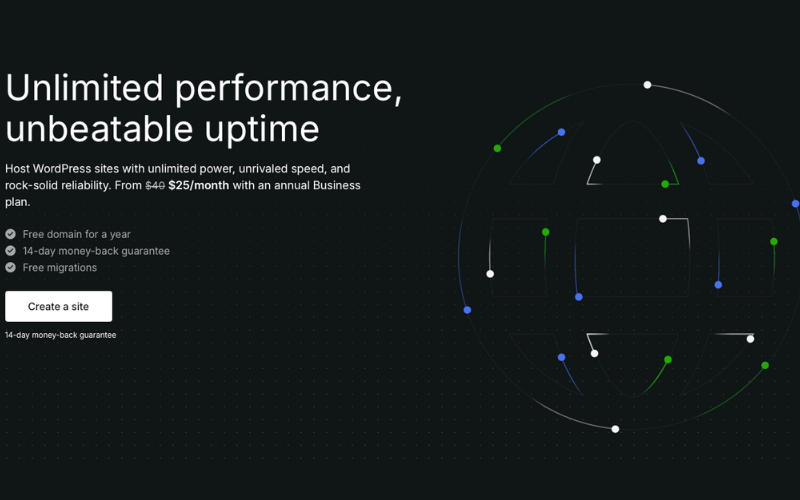Introduction to WordPress
WordPress stands as one of the most influential and widely used content management systems (CMS) globally, powering over 43% of all websites on the internet. Originally launched in 2003 as a blogging platform, WordPress has evolved into a full-featured CMS capable of building anything from simple personal blogs to complex enterprise websites and ecommerce stores. Its open-source nature, flexibility, and a massive ecosystem of themes and plugins have cemented its dominance for individuals, businesses, and developers alike.
iscover our in-depth WordPress review, covering its features, ease of use, flexibility, pricing, and performance. Find out if WordPress remains the top choice for bloggers, developers, and business owners building websites today.
This article provides an exhaustive review of WordPress, exploring its history, core features, customization options, security, performance, community, and its place in the modern web landscape. Whether you’re a beginner contemplating your first website or an experienced developer assessing WordPress for your next project, this guide covers everything you need to know.

The History and Evolution of WordPress
WordPress was created by Matt Mullenweg and Mike Little in 2003 as a fork of an existing CMS named b2/cafelog. The platform was initially designed to simplify blogging and website publishing for non-technical users. Over the years, it has undergone continuous development, incorporating features like custom post types, advanced media management, REST API, and the revolutionary Gutenberg block editor.
WordPress is managed by the WordPress Foundation and developed collaboratively by thousands of volunteers worldwide. Its open-source GPL license means it is free to use, modify, and distribute. This has fostered an enormous ecosystem that includes themes, plugins, developers, hosting providers, and educational resources.
WordPress.com vs WordPress.org: Understanding the Difference
When people mention WordPress, it often causes confusion because there are two related but distinct platforms:
- WordPress.org: This is the open-source WordPress CMS software that anyone can download and install on their own web hosting server. It offers complete control over your website, full customization freedom, and access to thousands of plugins and themes. However, users must manage their hosting, security, and maintenance.
- WordPress.com: This is a commercial hosting platform run by Automattic, built on WordPress software but with managed hosting services. It offers free and paid plans with different levels of customization and features, mainly targeting users who want convenience without technical management.
This review primarily focuses on WordPress.org, the self-hosted version, as it offers the greatest flexibility and is the foundation of most professional websites.

Key Features of WordPress
WordPress is a powerhouse packed with features that make website creation accessible to novices and powerful for developers:
- User-Friendly Content Editor: The Gutenberg block editor introduced a visual, modular way of building content with blocks for paragraphs, images, videos, galleries, buttons, and custom widgets. It allows intuitive drag-and-drop layout design.
- Themes and Customization: WordPress supports thousands of free and premium themes that change the appearance and layout of your website. Themes can be customized via built-in theme customizers or through direct code editing for developers.
- Plugins and Extendibility: With over 60,000 plugins available in the WordPress Plugin Directory alone, you can add features like SEO optimization, caching, ecommerce, forms, analytics, social media integration, and more without writing code.
- Media Management: Upload and manage images, videos, audio, and documents with a robust media library that supports drag-and-drop uploading, image editing, and gallery creation.
- Multilingual Support: WordPress supports multilingual websites either natively or via plugins like WPML and Polylang, allowing sites to cater to global audiences.
- User Management and Roles: The platform offers a flexible user management system with roles like Administrator, Editor, Author, Contributor, and Subscriber, each with defined capabilities.
- SEO Friendly: WordPress’s clean code structure, customizable permalinks, and numerous SEO plugins like Yoast SEO help optimize your site for search engines.
- Responsive Design: Most modern themes are mobile-responsive, ensuring your website looks great on any device.
- REST API: The WordPress REST API enables integration with external applications, headless CMS configurations, and mobile app development.
- Ecommerce Ready: Using plugins like WooCommerce, WordPress can power full-featured online stores with product management, payment gateways, and shipping configurations.
WordPress Installation and Setup
Installing WordPress is straightforward. Most web hosting providers offer one-click WordPress installations via control panels like cPanel or Plesk. The process involves choosing a domain, setting database credentials, and running an installation wizard that sets up the core files and admin account.
After installation, users configure site settings such as permalinks, reading preferences, and privacy policies. From there, they can select themes, install plugins, and start publishing content.
For developers, WordPress also supports command-line tools like WP-CLI to automate installations and maintenance tasks.
Customizing Your WordPress Site
Customization is where WordPress shines, offering limitless possibilities:
- Theme Customization: The WordPress Customizer allows you to change colors, fonts, layouts, header images, menus, and widgets in real-time with live preview. Premium themes often provide additional options.
- Page Builders: For users wanting advanced design without coding, page builder plugins like Elementor, Beaver Builder, and Divi offer drag-and-drop interfaces to create complex layouts.
- Custom Post Types and Taxonomies: Developers can extend WordPress’s content model by adding custom post types (e.g., portfolios, testimonials) and taxonomies (categories, tags) tailored to their content.
- Child Themes: To safely modify themes, WordPress supports child themes that inherit styles and templates but allow custom changes without losing updates.
- Custom Code: For advanced users, WordPress permits direct editing of theme PHP files, CSS, and JavaScript to add unique functionality and styles.
Security and Maintenance
Security is paramount in any CMS, and WordPress takes this seriously, but it requires active management:
- Core Updates: WordPress regularly releases updates that patch security vulnerabilities and improve features. Automatic updates can be enabled for minor releases.
- Plugin and Theme Updates: Third-party themes and plugins need frequent updating to fix bugs and vulnerabilities.
- Security Plugins: Plugins like Wordfence, Sucuri, and iThemes Security offer firewalls, malware scanning, login protection, and brute-force attack prevention.
- Backup Solutions: Backup plugins such as UpdraftPlus and BackupBuddy allow scheduled site backups and easy restoration.
- User Access Controls: Proper user roles and two-factor authentication improve login security.
- Hosting Environment: Choosing a secure, optimized hosting provider with SSL certificates and firewalls enhances WordPress security.
Performance Optimization
Site speed affects user experience and SEO. WordPress offers multiple ways to improve performance:
- Caching: Plugins like W3 Total Cache and WP Super Cache store static versions of pages to reduce server load.
- Image Optimization: Compressing images and lazy loading techniques improve load times.
- Content Delivery Network (CDN): Services like Cloudflare distribute your content worldwide for faster access.
- Database Optimization: Cleaning up unused data and limiting post revisions keeps databases efficient.
- Minification: Reducing CSS, JavaScript, and HTML file sizes improves speed.
Some managed WordPress hosting providers include these optimizations at the server level for better out-of-the-box performance.
WordPress Community and Ecosystem
One of WordPress’s biggest strengths is its vibrant community:
- Developers and Designers: Thousands of professionals contribute themes, plugins, and code.
- Forums and Support Groups: The official WordPress.org forums, Stack Exchange, Reddit, and social media groups offer peer-to-peer support.
- WordCamps and Meetups: Regular conferences and local meetups provide education, networking, and collaboration opportunities.
- Educational Resources: Tons of tutorials, courses, and blogs help users of all skill levels master WordPress.
The ecosystem drives innovation and provides resources that make WordPress adaptable and future-proof.
WordPress for Businesses and Ecommerce
Businesses of all sizes rely on WordPress for their websites:
- Corporate Websites: WordPress powers complex corporate sites with integrated CRM, multilingual content, and custom workflows.
- Blogs and Media: Publishers use WordPress for content-heavy sites with editorial workflows.
- Ecommerce Stores: WooCommerce turns WordPress into a fully capable online store supporting digital and physical products, subscriptions, memberships, and more.
- Portfolios and Personal Branding: Artists, freelancers, and professionals showcase work with beautiful portfolio themes.
- Nonprofits and Educational Sites: WordPress supports donation systems, event management, and course delivery.
Advantages and Limitations of WordPress
Advantages
- Open Source and Free: No licensing costs and full ownership of your website.
- Highly Flexible: Supports blogs, stores, portfolios, forums, memberships, and more.
- Extensive Plugin and Theme Library: Easily add any functionality.
- Strong SEO Capabilities: Built-in features and plugins for optimization.
- Vast Community Support: Resources for troubleshooting and learning.
- Scalable: Suitable for small blogs and high-traffic enterprise sites.
Limitations
- Requires Maintenance: Updates, backups, and security require user attention.
- Learning Curve: Beginners may find customization and troubleshooting challenging.
- Plugin Compatibility Issues: Using many plugins can cause conflicts.
- Performance Depends on Hosting: Poor hosting can lead to slow sites.

Choosing Hosting for WordPress
While WordPress software is free, choosing the right hosting impacts performance and reliability:
- Shared Hosting: Affordable but limited resources; good for small sites.
- Managed WordPress Hosting: Providers like WP Engine, Kinsta, and SiteGround optimize servers specifically for WordPress, including automatic updates, backups, and enhanced security.
- VPS and Dedicated Servers: For high-traffic or resource-intensive sites requiring full control.
Selecting a hosting provider with WordPress expertise ensures better performance and security.
In you want to know about Ahrefs then: CLICK HERE
Conclusion
WordPress remains the undisputed leader in the CMS world due to its flexibility, extensibility, and community-driven development. It empowers users ranging from beginners to enterprise developers to build websites tailored precisely to their needs. While it requires some maintenance and care to keep secure and performant, its massive ecosystem and ongoing innovation continue to make it the best choice for creating and managing websites.
Whether you want to start a personal blog, grow a business website, or build an ecommerce empire, WordPress offers the tools, freedom, and community support to help you succeed on the web.
Frequently Asked Questions (FAQs)
Is WordPress free to use?
Yes, the WordPress software itself is free and open-source. However, you will need to pay for web hosting, domain registration, and possibly premium themes or plugins.
Do I need coding skills to use WordPress?
Basic WordPress setup and content management don’t require coding, thanks to the block editor and themes. However, advanced customization may need HTML, CSS, PHP, or JavaScript knowledge.
Can WordPress be used to build an online store?
Absolutely. With the WooCommerce plugin, WordPress can be transformed into a powerful ecommerce platform supporting various payment gateways, shipping options, and product types.
Is WordPress secure?
WordPress is secure if kept updated and maintained properly. Using security plugins, strong passwords, SSL certificates, and secure hosting enhances safety.
How often should I update WordPress?
You should update WordPress core, themes, and plugins as soon as updates are released to patch vulnerabilities and improve functionality.
Can WordPress handle high-traffic websites?
Yes, with proper hosting and optimization, WordPress can scale to handle millions of monthly visitors.
What is a WordPress plugin?
Plugins are add-ons that extend WordPress’s functionality, from SEO tools to contact forms and social media integrations.
Is WordPress suitable for blogging only?
No, WordPress is a full CMS that can build business sites, portfolios, forums, and more—not just blogs.
Can I move my WordPress site to another host?
Yes, WordPress sites are portable. You can migrate your site files and database to a new hosting provider, often with the help of migration plugins or professional services.
How do I get support for WordPress?
Support is available via the WordPress.org forums, third-party tutorials, hosting providers, and professional WordPress developers.


Pingback: Ahrefs Review - SEO Powerhouse for Professionals -